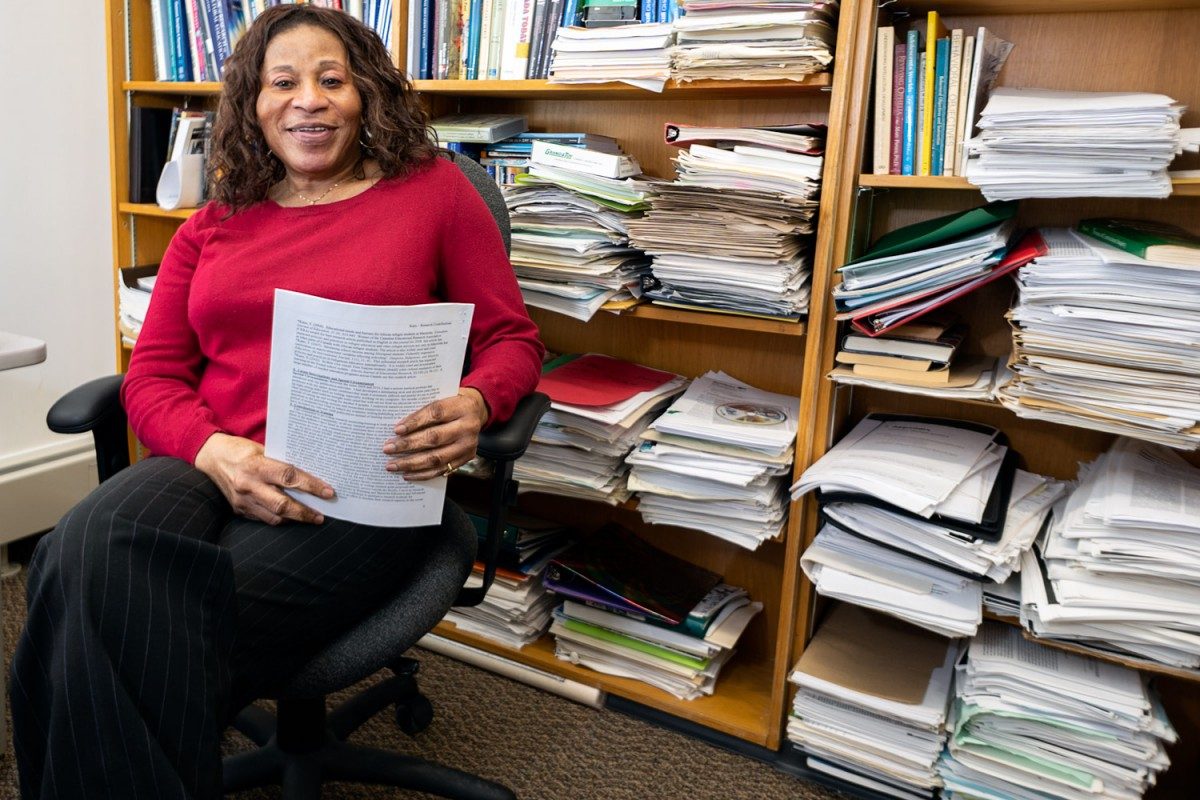
In order for teachers to bring about meaningful positive change, they have to get political, says Prof. Yatta Kanu.
‘No neutral approach to teaching’
Teachers need to get political to incite positive change, prof. says
In order for teachers to bring about meaningful positive change, they have to get political, says Prof. Yatta Kanu.
“Teaching is very political. There is no neutral approach to teaching. You either teach in order for you to bring meaningful change, or in ways that disenable (students) into silence and adapt to the world as it is.”
Her concern stems from early findings of a study conducted with Associate Prof. Frank Deer and researchers in Saskatchewan about how teachers in urban areas of the Prairie provinces are delivering Indigenous perspectives in the classrooms. Kanu is finding that teachers are discussing the historical facts surrounding topics like residential schools, smallpox epidemics and the loss of language and culture, but she says teachers now have to take the next step.
“It’s one thing to integrate Indigenous culture as if it’s a part of multiculturalism, but this work is political,” Kanu says. “Look at it from the perspective of racism, race and colonization, so that you learn to make sure that this kind of thing does not happen again. But I am not seeing that.”
Titled Aboriginal Perspectives at the Cultural Interface: Researching the Interventions, the four-year study examines the practices of 24 teachers in 12 high schools in Manitoba and Saskatchewan, provinces with the fastest growing Indigenous populations in Canada.
Both provinces also experience high rates of dropout among Aboriginal students, symptomatic of cultural knowledge and Indigenous perspectives lacking in school curriculum, Kanu says.
“If you’re going to school every single day sitting in the classroom where you are not part of the communication at all you are not part of learning, you are not part of anything people you are listening to other people’s stories, other people’s histories, you do not see anything of yourself in the curriculum. That is bound to put you off,” Kanu says, adding that provincial and territorial governments across Canada have now mandated that schools integrate Aboriginal perspectives into curriculum.
Kanu and Deer’s research aims to fill the gap in the literature about effective, sustainable ways of integrating Indigenous perspectives in the classroom. The team is plans to disseminate their findings both locally to Manitoba teacher educators, across the country and around the world.
To that end, the researchers first spoke to the teachers to get their impressions of the mandated curriculum, followed by classroom observation and then followed up with individual interviews with the teachers, “because if you see something happening in the classroom, you need to follow up with them afterward to clarify questions about what the researchers saw happening in the classroom,” Kanu says, adding that students were also interviewed to get their perspective on what is being taught.
Halfway into the research project, early findings are promising but there is room for improvement.
Kanu says schools are doing a terrific job of integrating Indigenous perspectives, engaging in activities like smudging, hosting powwows and other cultural activities and inviting Aboriginal elders to their classrooms. School divisions in Winnipeg have mandated recording attendance, academic achievement, general well-being and comfort level of Aboriginal students, and class participation. Kanu knows from her previous research the positive correlation between the implementation of Indigenous cultural perspectives and student academic performance.
“It is quite positive. We are not there yet, but we are seeing improvements. The dropout rate it is decreasing,” she says. “In academic achievement, in reading and math, they are really improving. Compared to 15 years ago when I first did this research, it was like night and day. The Aboriginal students are beginning to feel a lot more comfortable—comfortable enough for them to come to school more often to participate in classes more.”
Where there is room for improvement, Kanu says, is for the teachers to tackle political issues in the classroom, rather than lecturing historical facts, Indigenous histories and traditions. She sees potential for change in professional development.
“When they go to professional development sessions, the experts who are talking about Aboriginal histories are just giving them the information. And that’s not going to help them to change,” Kanu says. “Really need good PD, effective PD has to take into account issues of race, racism in colonization that integrates it in a meaningful way that brings meaningful change that the (Truth and Reconciliation Commission) is talking about.”






